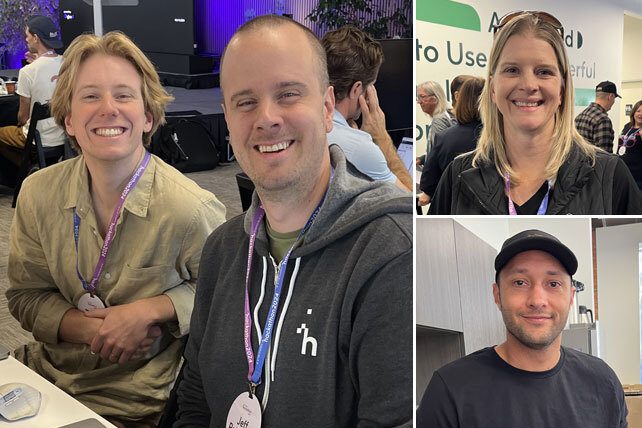“And really the goal is so that more people can have access to the gospel,” said Peterson. “More people can engage with Scripture.”
Waha won the Best Storytelling award, receiving $15,000.
Hacking concluded at 9:00 a.m. Sunday, Sept. 15. Teams then presented their solutions to the judges via a 90-second video for one round of judging. Videos that surpassed the 90-second limit were cut off. Entries included a solution that offered AI-generated coloring pages for children’s ministry leaders, while another solution was designed to intercept men searching for an escort online and help them have “an encounter with Jesus to turn back to flourishing.”
At least two solutions had the goal of preventing suicide, one of them being from Team SARAIH. ChurchLeaders spoke to SARAIH team member Trudy Fuher, who assisted the team with her skills in marketing and project management. She said the group’s app originally was going to target people struggling with suicidal ideation, but the team switched to targeting the “champions” in those people’s lives since the champions are the ones who are likely to take action.
“It could be a spouse, it could be a parent, it could be a pastor, it could be a doctor, a good friend,” said Fuher. “All those people see signs, especially when you think about [suicidal] ideation…they’re going to be the one that’s reaching out for help.”
“There’s not a lot of support for those people,” she explained. “Like, how do you help somebody who’s feeling down, who wants to end their life? What do you say to them? What do you do? Where do you go?”
Users of the app would first “fill out the questionnaire. It would then guide them to a process where it basically creates a customized wellness plan for them and for the person in their life that’s going through that,” Fuher said. “And it’s got neuroscience behind it. So it starts with behavior changes over time….And then at the end it also provides resources that are out there already.”
Another hacker ChurchLeaders spoke to was Ryan Fontenot, who with his business partner Todd “TJ” Person has a company called Atrium. The two competed as a team under the name “Atrium AI.”
Fontenot said that he and Person met while serving in church ministry and identified a problem with church security. “On a Sunday morning, we’d get a list of potential threats to the church from, like, the police department,” Fontenot said. “It’s 8:00. We’re supposed to memorize these faces, and we have a few hundred people coming in the door within 30 minutes…It’s a very difficult problem to solve.”
RELATED: Kenny Jahng: What Church Leaders Need To Know About AI
“It’s kind of been weighing on our hearts for a while,” said Fontenot. “How can we help solve this using technology? We noticed that churches have security cameras all over the place, so we’re like, well, why can’t we just tie into that? Write some code that will leverage AI and facial recognition, one, to help identify the threat of potential adversaries to the churches.”

